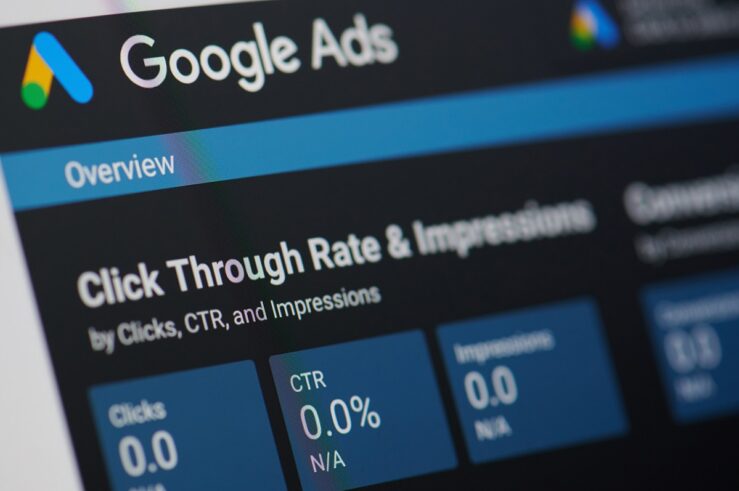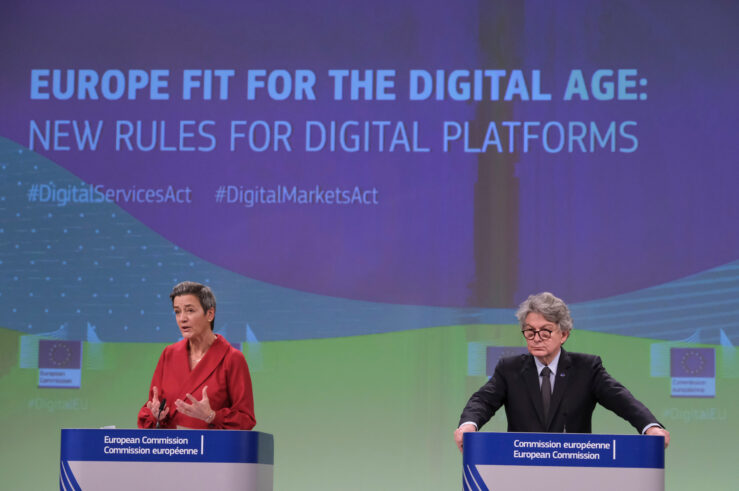Showing results for: “digital markets act”
Commissioner Wright Rightly Calls the Question on Section 5 Guidance
Anybody who has spent much time with children knows how squishy a concept “unfairness” can be. One can hear the exchange, “He’s not being fair!” “No, she’s not!,” only so many times before coming to understand that unfairness is largely in the eye of the beholder. Perhaps it’s unfortunate, then, that Congress chose a century ... Commissioner Wright Rightly Calls the Question on Section 5 Guidance
The Broken Promises of Europe’s Digital Regulation
If you live in Europe, you may have noticed issues with some familiar online services. From consent forms to reduced functionality and new fees, there is a sense that platforms like Amazon, Google, Meta, and Apple are changing the way they do business. Many of these changes are the result of a new European regulation ... The Broken Promises of Europe’s Digital Regulation
ICLE/ITIF Amicus Brief Urges Court to Set Aside FCC’s Digital-Discrimination Rules
The Federal Communications Commission (FCC) recently adopted sweeping new rules designed to prevent so-called “digital discrimination” in the deployment, access, and adoption of broadband internet services. But an amicus brief filed by the International Center for Law & Economics (ICLE) and the Information Technology & Innovation Foundation (ITIF) with the 8th U.S. Circuit Court of ... ICLE/ITIF Amicus Brief Urges Court to Set Aside FCC’s Digital-Discrimination Rules
How Much Information Do Markets Require?
One of the biggest names in economics, Daron Acemoglu, recently joined the mess that is Twitter. He wasted no time in throwing out big ideas for discussion and immediately getting tons of, let us say, spirited replies. One of Acemoglu’s threads involved a discussion of F.A. Hayek’s famous essay “The Use of Knowledge in Society,” wherein ... How Much Information Do Markets Require?
The competitive implications of the Affordable Care Act for health insurance merger review
Last week concluded round 3 of Congressional hearings on mergers in the healthcare provider and health insurance markets. Much like the previous rounds, the hearing saw predictable representatives, of predictable constituencies, saying predictable things. The pattern is pretty clear: The American Hospital Association (AHA) makes the case that mergers in the provider market are good ... The competitive implications of the Affordable Care Act for health insurance merger review
FCC Chairman Wheeler’s claimed fealty to FTC privacy standards is belied by the rules he actually proposes
Next week the FCC is slated to vote on the second iteration of Chairman Wheeler’s proposed broadband privacy rules. Of course, as has become all too common, none of us outside the Commission has actually seen the proposal. But earlier this month Chairman Wheeler released a Fact Sheet that suggests some of the ways it ... FCC Chairman Wheeler’s claimed fealty to FTC privacy standards is belied by the rules he actually proposes
In Defense of the Jones Act
Chances are, if you have heard of the Jones Act, you probably think it needs to be repealed. That is, at least, the consensus in the economics profession. However, this consensus seems to be driven by an application of the sort of rules of thumb that one picks up from economics courses, rather than an ... In Defense of the Jones Act
Justice Department’s Google Adtech Antitrust Suit Does Not Add Up
The trial of the U.S. Justice Department’s (DOJ) “adtech” antitrust lawsuit against Google kicked off Sept. 9 in U.S. District Court in Alexandria, Virginia. In a nutshell, the DOJ (joined by 17 states) argues that Google illegally monopolized key digital-advertising technologies through a variety of anticompetitive tactics. But the DOJ will find it difficult to ... Justice Department’s Google Adtech Antitrust Suit Does Not Add Up
The Case Against Self-Preferencing as a New Antitrust Offense
The practice of so-called “self-preferencing” has come to embody the zeitgeist of competition policy for digital markets, as legislative initiatives are undertaken in jurisdictions around the world that to seek, in various ways, to constrain large digital platforms from granting favorable treatment to their own goods and services. The core concern cited by policymakers is ... The Case Against Self-Preferencing as a New Antitrust Offense
The FTC Tacks Into the Gale, Battening No Hatches: Part 2
Part 1 of this piece can be found here. Emergence of the ‘Neo-Brandeisians’ Thus, matters unfolded until the curtain began to descend on the second Obama term in 2016. In the midst of presidential primary season, a targeted political challenge to the prevailing economic approach to antitrust first came to light. No one has yet ... The FTC Tacks Into the Gale, Battening No Hatches: Part 2
Towards a Democratic Antitrust
This symposium discusses the “The Politicization of Antitrust.” As the invite itself stated, this is an umbrella topic that encompasses a wide range of subjects: from incorporating environmental or labor concerns in antitrust enforcement, to political pressure in enforcement decision-making, to national security laws (CFIUS-type enforcement), protectionism, federalism, and more. This contribution will focus on ... Towards a Democratic Antitrust
Breaking Up: “It’s Not You, It’s Me”, “Maybe We Should See Other People” and “with or without You”
[This post is the second in an ongoing symposium on “Should We Break Up Big Tech?” that will feature analysis and opinion from various perspectives.] [This post is authored by Philip Marsden, Bank of England & College of Europe, IG/Twitter: @competition_flaneur] Since the release of our Furman Report, I have been blessed with an uptick in #antitrusttourism. ... Breaking Up: “It’s Not You, It’s Me”, “Maybe We Should See Other People” and “with or without You”











